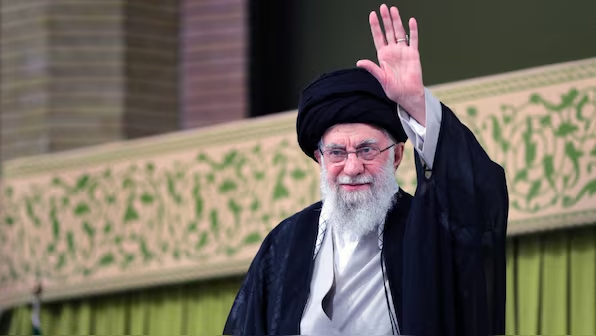Who’s Ayatollah Ali Khamenei? Iran’s supreme leader under global scrutiny

Iran’s supreme leader, Ayatollah Ali Khamenei, faces threats from Israel.
Ayatollah Seyyed Ali Khamenei, born in 1939, is the Supreme Leader of the Islamic Republic of Iran and has held the position since 1989 following the death of Ayatollah Ruhollah Khomeini, the leader of the 1979 Iranian Revolution. Khamenei wields ultimate authority in Iran, commanding both political and military affairs, including the powerful Islamic Revolutionary Guard Corps (IRGC), judiciary, state media, and foreign policy.
A deeply conservative Shia cleric, Khamenei’s leadership has been defined by his ideological opposition to the West—particularly the United States and Israel. He has consistently voiced support for resistance movements like Hezbollah and Hamas, branding Israel a “cancerous tumour” and expressing unwavering commitment to the Palestinian cause. His decades-long antagonism toward Israel has shaped Iran’s regional posture and entrenched it in a web of proxy conflicts across the Middle East.
Khamenei’s strategic decisions have made him the architect of Iran’s foreign policy and nuclear ambitions. Under his leadership, Iran expanded its influence in Syria, Lebanon, Iraq, and Yemen through both diplomacy and armed proxies. While Iran maintains that its nuclear program is peaceful, Israel and many in the West remain unconvinced.
Why Israel Now Sees Khamenei as a Direct Target
Tensions between Iran and Israel have escalated drastically in recent weeks. On June 19, 2025, Israel’s Defence Minister Yoav Gallant and Prime Minister Benjamin Netanyahu declared that Ayatollah Khamenei is now a legitimate target in Israel’s war strategy. This marks a significant shift in Israeli policy—moving from targeting military infrastructure to seeking regime disruption at the highest level.
Israel’s justification centers around Khamenei’s control of Iran’s military-industrial complex, particularly its nuclear and ballistic missile programs, and his alleged role in sponsoring attacks on Israeli interests. The final straw, according to Israeli officials, was Iran’s direct missile barrage and intelligence suggesting that Khamenei personally authorised the strikes. In retaliation, Israel carried out airstrikes on Iran’s Arak nuclear facility and vowed to continue targeting key government sites.
Netanyahu has openly claimed that removing Khamenei would end the cycle of aggression, describing him as the brain behind Iran’s “global terror network.” Defence Minister Gallant echoed this sentiment, stating, “The head of the snake is in Tehran.”
The Global Fallout and Risk of Wider War
The decision to publicly threaten Iran’s Supreme Leader has raised alarms globally. While some Israeli allies support the country’s right to defend itself, others warn that assassinating Khamenei would be a red line that could plunge the Middle East into a broader regional war.
Russia and China have both called for restraint, urging diplomacy. The United States, while backing Israel’s right to self-defence, has not endorsed direct action against Khamenei. Security experts warn that killing Iran’s Supreme Leader could create a dangerous power vacuum and unleash waves of violent reprisals through Iran-backed groups in Lebanon, Syria, Iraq, and Gaza.
Meanwhile, Iran remains defiant. Its leadership, including President Ebrahim Raisi and senior IRGC commanders, have vowed to defend the nation against “Zionist aggression” and maintain their path. Khamenei himself has remained silent in public since the threats, but official Iranian media have framed the Israeli statements as desperate acts of provocation.
Conclusion
Ayatollah Ali Khamenei is more than a political figure—he is the ideological backbone of Iran’s Islamic theocracy and the central pillar of its regional ambitions. Israel’s unprecedented threats against him signal not only heightened military confrontation but also a potential turning point in Middle Eastern geopolitics. As the world watches, the fate of a deeply entrenched leader and the stability of an entire region hang in the balance.

